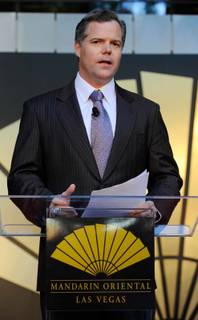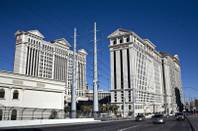Saturday, March 6, 2010 | 2:01 a.m.
Sun coverage
Last-minute lobbying led to the Legislature’s surprise reinstatement of a portion of slot machine taxes earmarked for problem gambling treatment, education and research.
Gov. Jim Gibbons had proposed eliminating all money for gambling addiction services to help plug the budget deficit, as money from the $2 slot tax was needed for other programs. Instead, the Legislature restored about half of the money intended for problem gambling assistance in fiscal year 2011, along with a host of other social services, in exchange for increases in business fees such as those charged by the Gaming Control Board to license casino owners.
Still, lower slot tax collections will likely yield less than $500,000 for problem gambling grants in the coming year, much less than initial projections of around $850,000, Nevada Health & Human Services spokesman Ben Kieckhefer said.
“Nevada depends on gambling, which includes gambling by people who are out of control,” said Assemblyman James Ohrenschall, D-Las Vegas, who helped circulate a list of programs, including problem gambling services and assistance for needy seniors, slated for cutting. Supporters called it the “ugly list” and said it represented programs certain legislators refused to cut.
“I think it shocked the conscience of legislators to cut this funding,” said Ohrenschall, a recent graduate of Boyd Law School who skipped the state bar exam to attend last month’s special session in Carson City.
***
No executive may be more aware of how perceptions of wealth have changed than the head of Nevada’s largest casino company.

MGM Mirage Chairman and CEO Jim Murren speaks at the grand opening of the Mandarin Oriental Las Vegas at CityCenter on Dec. 4, 2009.
In an interview with Fox Business Network last month, MGM Mirage CEO Jim Murren struck a populist note when he said he has cut back on things such as fancy cars, dining out and luxury vacations.
“All of us feel differently about money and about value today than we did even a year ago or two years ago,” he said. “I feel like I’m a better person today than I did three years ago. I don’t do much shopping … but I spent money that I didn’t need to spend.”
After buying a BMW and Mercedes, Murren said he’s “down to a Jeep Cherokee” — an SUV also preferred by Murren’s mentor, billionaire Kirk Kerkorian, a man known for his lack of pretension.
Other executives have recently professed their liberation from the kind of ostentatious spending that fueled the American economy and, ultimately, the recession.
And yet, not all companies stand to lose from the country’s shifting values like MGM Mirage. It, after all, developed a high-end business model in Las Vegas dependent upon a certain level of conspicuous consumption.
Murren’s professed relief in “saving and making do with what I have and not being anxious to have more” seems to fit the personality of the informal yet outspoken executive, who frequently praises his sensible, New England upbringing.
“You’re not defined by the car you drive or the clothes you wear or the jewelry you have,” he added.
Sensible spending will be good for consumer budgets. Whether it’s good for Las Vegas has yet to be seen.
***
In an investor presentation posted on its Web site last week, Harrah’s Entertainment reiterated its long-term plans to build an open-air retail and entertainment district between its Flamingo and O’Sheas casinos and to finish off its 665-room Octavius Tower at Caesars Palace.
Harrah’s revealed a preliminary budget of $550 million for the corridor and the goal of achieving a return of at least 25 percent by capitalizing on foot traffic and demand for nongambling amenities rather than casinos.

Caesars Palace is seen on Jan. 14, 2010.
Harrah’s also said $325 million of the $410 million cost of Octavius Tower has been spent so far. It stopped construction last year after determining that the recession had killed demand for additional hotel rooms in Las Vegas. Similarly, competitors have shelved plans for resorts, while lenders pulled the plug on the under-construction Fontainebleau Las Vegas, which may sit idle for years. Octavius Tower is a self-contained expansion that can sit empty without disrupting business at Caesars, officials have said.
Plans for both projects remain on hold, Harrah’s spokesman Gary Thompson said last week.
Spending hundreds of millions of dollars is not a prospect some investors want to entertain in the midst of Las Vegas’ worst economy.
These are cost-effective, high-return projects “designed to capitalize on existing visitation,” the presentation reminded them.

Join the Discussion:
Check this out for a full explanation of our conversion to the LiveFyre commenting system and instructions on how to sign up for an account.
Full comments policy